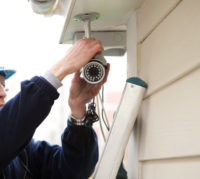Study Shows High Consumer Expectation for Rapid Security Event Response
Eighty-six percent of alarm system owners expect a response within half an hour, and 42 percent expect a police response within 10 minutes of an alarm. Source: Parks Associates
A large majority (87 percent) of residential security owners say reliable and fast response to security events is important to their system purchase decision, according to Parks Associates.
In a whitepaper titled “Expectations vs. Reality: Enhancing Alarm Monitoring Response,” the Dallas-based market research firm states this expectation is not just about the quick and reliable arrival of police, fire, or medical teams, but also about the assurance of safety and security in the most critical moments.
At the same time, Parks Associates says, security providers face the challenge of demonstrating their worth against new competitors offering self-monitoring solutions deemed “safe enough” by many consumers. To stand out, providers are developing new offerings that distinguish them from self-monitoring options, create various levels of value-added services, and generate additional revenue streams.
Actual police response times can be much longer than consumers expect. While there are no standardized databases to keep record of police response, the white paper cites law enforcement data analyst Jeff Asher’ analysis of 15 municipalities that share calls for service data shows a worrying trend, with all but one city showing an increase in response times between 2019 and 2022. Response times increased over 10 percent in six of the municipalities between 2019 and 2022, with response times across those same municipalities ranging from 78 minutes to 146 minutes.
Given current emergency response times and the state of the police environment, there is an urgent need for more effective resource allocation, improved staffing strategies, and advanced call management and prioritization systems to ensure prompt responses. Public responders are progressively looking for solutions that shift from traditional service models to instant, digital alternatives with real-time information.
“Residential security players are supporting overwhelmed public resources with new standards — like The Monitoring Association’s AVS-01 alarm scoring standard — innovative verification technologies, and advanced monitoring and private guard services that help provide more context to alarms,” the white paper states. “All ecosystem players must innovate and experiment with new models to ensure priority alarms get quick response.”
This white paper highlights how security providers are actively adding revenues through new technology and response options, including private guard services, and ensuring fast response during security events, which differentiates their offerings from competitors. It underscores consumer expectations for professionally monitored security, including insights into the gap between reality and expectations for quick police response. The research also highlights consumer views on response times, including familiarity with and perception of fines, as well as the role of public resources for reliable safety and response.
Looking for a reprint of this article?
From high-res PDFs to custom plaques, order your copy today!





